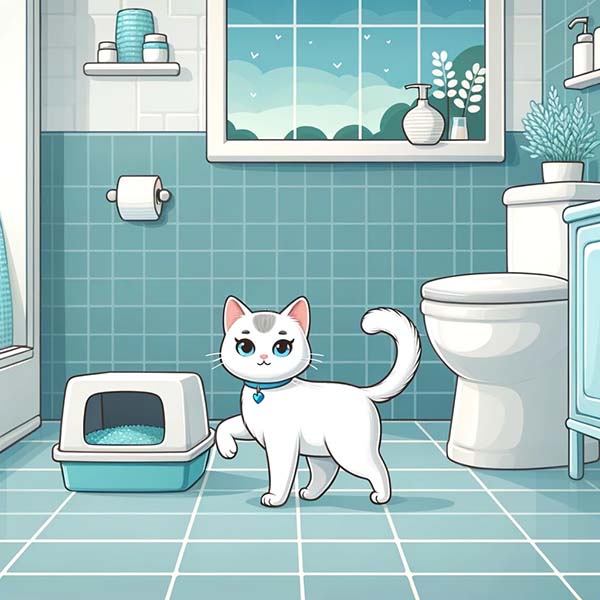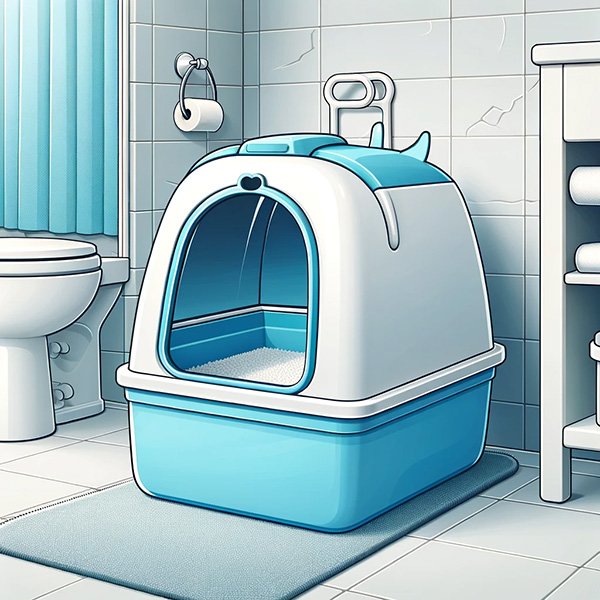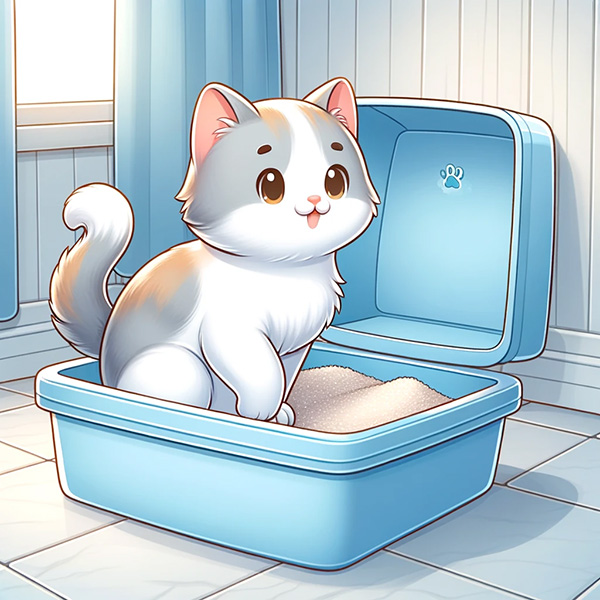Cats are known for their independent nature, captivating personalities, and endearing quirks. From graceful movements to soothing purrs, these furry companions have the ability to bring boundless happiness into our lives. However, there are moments when even the most devoted cat owner faces challenges that can leave them scratching their heads in frustration. One common issue many cat owners encounter is finding their beloved feline friend peeing outside the litter box.
The act of a cat urinating outside its litter box is a scenario that can baffle and trouble even the most adept cat owners. Why would a cat, known for its cleanliness and meticulous grooming habits, suddenly choose to relieve itself anywhere but in the designated litter box? The truth is this behavior frequently holds more complexity than initially apparent. From health concerns to environmental factors, various reasons can contribute to a cat's decision to forego the litter box. In this blog post, we'll discuss the potential causes behind a cat's inappropriate urination and explore effective strategies to address and resolve the issue.
Why Do Cats Pee Outside the Litter Box
Dirty Litter Box

Your cat may be peeing outside of the litter box because it is unclean. Cats can be selective about their chosen spots for elimination. Cats will go elsewhere if you don't regularly clean the litter box. Because cats have a far more sensitive sense of smell than humans do, even a litter box that seems clean to you may have an unpleasant stench to your cat. So make sure to clean up cat litter regularly and add fresh litter.
Behavioral Causes

The two most common non-medical causes of inappropriate urination in cats are an aversion to the litter box and the introduction of unexpected stressors. Domestic cats prefer stable environments and rarely thrive under pressure. If your cat has started urinating in inappropriate places, it may be a sign that it is unhappy with recent events. This event may include a threat to its territory, over-stroking, new decorations, or even a new baby in the house. Reducing stress in your cat's environment can help keep unwanted behavior away.
Medical Problems

A cat urinating outside its litter box can indicate underlying medical concerns. Common medical problems like urinary tract infections, bladder stones, or other medical issues result in discomfort during urination. Cats experiencing medical problems could display signs like frequent urination, difficulty, or the presence of blood in their urine. These discomforts can cause them to link the litter box with pain.
Prioritize consulting your veterinarian to eliminate any potential medical issues before considering behavioral interventions. Your cat's litter box aversion may gradually subside as the medical issue improves. During this time, maintain a clean litter box and consider using a different type of litter to reduce any lingering negative associations.
Common Medium Problems

Urinary Tract Infections (UTIs): Urinary tract infections (UTIs) are bacterial ailments that can lead to pain and discomfort while urinating. A feline with a urinary tract infection might connect the litter box with this pain and decide to urinate in a different location.
Bladder Stones: Bladder stones are mineral accumulations in the urinary tract that can cause irritation and blockages. Cats with bladder stones might urinate frequently and experience pain, leading them to avoid the litter box.
Feline Lower Urinary Tract Disease (FLUTD): FLUTD encompasses a range of conditions that impact the lower urinary tract, encompassing inflammation, infections, and urinary blockages. Cats with FLUTD might urinate outside the box due to discomfort.
Diabetes: Felines diagnosed with diabetes might experience increased thirst and urination. They might choose alternative spots if their litter box is not nearby or they associate it with discomfort.
Kidney Disease: Cats with kidney disease might urinate more frequently due to their kidneys' reduced ability to concentrate urine. They might not always reach the litter box in time.
Hyperthyroidism: Hyperthyroidism is an overactive thyroid gland that can lead to increased water consumption and urination. Due to their increased frequency, cats might urinate outside the box.
Arthritis: Arthritis can cause discomfort for cats when entering or exiting the litter box. They might avoid using the box if they find it uncomfortable.
Cystitis: Cystitis refers to bladder inflammation, often associated with stress or bacterial infections. Cats suffering from cystitis might connect the litter box with discomfort and choose alternative places to urinate.
Neurological Issues: Neurological conditions can affect a cat's ability to control its bladder. Consequently, this could lead to incidents occurring outside the litter box.
Incontinence: Certain medical conditions, like a weak urinary sphincter, can cause cats to leak urine involuntarily, resulting in accidents.
Stress and Anxiety

Cats are sensitive creatures, and changes in their environment can trigger stress and anxiety. Whether it's a new pet, a move to a new home, changes in routine, outdoor cats lingering in your yard, or even the presence of unfamiliar people, these stressors can prompt a cat to mark its territory by urinating in different spots.
If the cause of your cat peeing outside the litter box is due to stress and anxiety, be sure to identify and address the stressors when possible. Provide hiding spots, scratching posts, tunnels, and vertical spaces for your cat to feel secure. Employ pheromone diffusers such as Feliway to establish a tranquil ambiance. Engage in interactive playtime and provide mental enrichment to reduce stress.
Old Age

Just like humans, elderly cats can experience age-related issues such as arthritis, which might make it difficult for them to climb into a litter box with high sides or navigate enclosed spaces comfortably.
If you have a senior cat or cat with arthritis on hand, choose litter boxes with lower sides or cut an entryway in high-sided boxes. Place litter boxes in easily accessible locations, and ensure your cat doesn't have to navigate stairs to reach them.
Litter Box Problems

Not all litter boxes are the same to suit your cat's needs, and cats are particular about their litter boxes. For example, if the sides of your new litter box are too high, covered boxes, or the entrance is located too high up, your cat may have difficulty using it. Changing to a new litter box that works better for your cat could solve their inappropriate elimination of urine.
What is the frequency of your litter box cleaning? If the litter box isn't maintained adequately or if the litter type isn't preferable, cats might opt to avoid it altogether. Aim to scoop the litter box daily and perform a thorough cleaning and litter replacement every 1-2 weeks. Washing the litter box with mild, unscented soap can also help.
Another possibility is how many litter boxes you have in the house. It is possible that your cat prefers not to share a litter box with others, even if it's their own siblings. So if you have multiple cats, make sure each cat has one litter box plus one additional to accommodate all the cats. For example, in a household with two cats, providing at least three litter boxes is advisable.
Type of Cat Litter

Cats can be picky about the litter texture and scent. Try out different varieties of litter (clumping, non-clumping, scented, unscented) to discover the one that suits your cat's liking.
Most cats typically prefer fine-grained, unscented litter as they are very sensitive to small and prefer something gentle on their paws. Unscented litters tend to mimic the natural odor of soil, which some cats find more appealing. Cats with sensitive paws might prefer finer-grain litters, as they can be gentler on the feet. However, some cats might avoid finer grains if they stick to their paws.
It's important to note that a cat's litter preference can change over time, and what works for one cat might not work for another. When introducing a new type of litter, gradually mix it with the old litter to help your cat transition.
Territorial Marking

A cat will typically spray urine to mark its territory. Cats naturally and frequently use urine marking or "spraying" to mark their territory. When a cat becomes anxious about an intruder in its territory, it may begin to mark its area with urine.
Cats that haven't been spayed or neutered are more prone to exhibit territorial marking behavior compared to their spayed and neutered counterparts. This involves spraying or urinating in various spots to establish their territory. By spaying or neutering your cat can help reduce this behavior.
Social Dynamics

In multi-cat households, disputes between them can result in one cat perceiving itself as threatened or subordinate. Especially when introduction was not done correctly. This can result in urinating outside the litter box as a way to establish territory or avoid confrontation with other cats.
Provide separate resources for each cat to minimize competition and potential conflicts. Gradually reintroduce positive interactions between cats through play and treats. Monitor their behavior and consider seeking advice from a behaviorist if conflicts persist.
